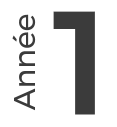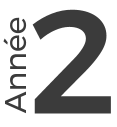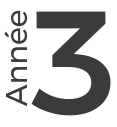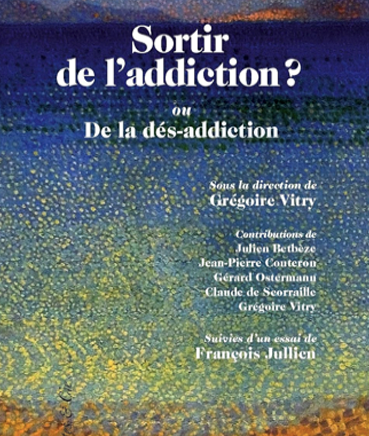Discover a philosophical approach to addiction resulting from meetings between the philosopher François Jullien and renowned addictologists. These contributions deal with addiction and ways to escape this cycle of self-destruction, particularly through psychotherapy.


ONLINE OPEN HOUSE
ONLINE OPEN HOUSE
December 10, 2024
from 6:30 p.m. to 8:30 p.m.
MEET US
Come and discover our training courses in strategic systemic approach, hypnosis and systemic coaching. You will meet the trainers and be able to talk with them!
“Resulting from a meeting between the philosopher François Jullien and addictologists, these contributions deal with addiction and the means to escape this spiral of self-destruction, in particular through psychotherapy.” ©Electre 2024
“Getting Out of Addiction” is a work directed by Grégoire Vitry, an eminent figure in the field of systemic and strategic therapy. This book offers an innovative and multidisciplinary approach to understanding and treating addictions. It is aimed at mental health professionals, patients, and their families, providing them with practical tools and proven strategies for overcoming addictive behaviors.
“Getting out of addiction? or De -addiction
When we are mired in addiction, it may not be very helpful to start by asking “why” and trying to isolate and determine causes. Because perhaps it is already the language in which I speak, the language of "being", of assignment and explanation, which keeps me, without my knowing it, prisoner.
Isn’t there a completely different way to approach addiction? Rather than wanting to "get out of it", as if in search of salvation, shouldn't we start by disengaging from this addiction, undoing its fixed configuration? By opening a gap from it, de-coinciding it. So as to finally have control over her. In order to reopen possibilities in one's life: to bring out a "second life", to bring out, step by step, through "silent transformation", real life. This essay is the result of a meeting between eminent addictologists and the philosophical work of Francois Jullien.”
Structure and content of the book
The book is divided into several sections, each addressing different aspects of addiction and offering treatment methods based on the systemic and strategic approach.
Understanding addictions:
- This section explores the theoretical foundations of addiction, examining the biological, psychological and social factors that contribute to dependence. It highlights the complexity of addictive behaviors and the need for a holistic approach to treating them.
Therapeutic strategies:
- Grégoire Vitry and his co-authors detail various systemic and strategic brief therapy techniques. They explain how these methods can be applied to interrupt cycles of addiction and promote lasting change. Case studies illustrate the effectiveness of these strategies in real-world situations.
Practical interventions:
- The book offers concrete interventions for therapists and counselors. These interventions include paradoxical prescriptions, behavioral tasks, and reframing techniques. The authors explain how to adapt these interventions to the specific needs of each patient.
Role of the family and social environment:
- An important section is devoted to the involvement of loved ones in the treatment process. It examines how family and social dynamics can either support or hinder recovery, and offers strategies for mobilizing support from loved ones.
Prevention and rehabilitation:
- This part discusses preventative measures and rehabilitation programs that can help maintain long-term abstinence. The authors discuss aftercare and support programs that are essential to preventing relapse.
Strengths of the book
- Multidisciplinary approach:
- “Getting Out of Addiction” integrates perspectives from psychology, sociology, and medicine, providing a comprehensive understanding of addictions.
- Practicality:
- The strategies and interventions proposed are directly applicable in clinical practice, making this book particularly useful for mental health professionals.
- Concrete cases:
- The case studies provide concrete examples of the application of theories and methods, illustrating their effectiveness and adaptability to different situations.
Conclusion
“Getting Out of Addiction” under the direction of Grégoire Vitry is an invaluable resource for anyone involved in the treatment of addictions. By combining theory and practice, this book provides the tools needed to help patients overcome their addictions and build healthier, more fulfilled lives. For more information, you can consult the LACT .
For those seeking to deepen their understanding of addictions and discover effective therapeutic approaches, “Getting Out of Addiction” is an essential guide.
 LACT Birthday
LACT Birthday
Because celebrating birthdays is also an opportunity to look back at how far we have come. Thank you to everyone who accompanied us on this path full of surprises and encounters.
- 2014 – Creation of LACT, representative of the Palo Alto School in France
- 2014 – Creation of LACT Research
- 2014 – Creation of the research network on systemic practice (SYPRENE)
- 2017 - DU in Relationship Clinic with Paris 8 University
- 2017 – Publication of When work hurts
- 2019 - Clinical Master's degree with specialization in psychopathology with the CTS of Professor Nardone
- 2020 - Systemic Coach Training
- 2020 – Publication of Change Strategies
- 2020 – Creation of SYPRES - www.syspres.org
- 2021 – HDS certification
- 2023 – Publication of Getting out of addiction?
- 2023 – Publication of Understanding and treating addictions
- 2023 – Organization of the first World Systemic Congress (WSC) – world-systemic-congress.org
- 2024 – DU Systemic and Strategic Approach to Education with Paris 8 University
To find out the prices, select the training that interests you
MAPPING OF ALL LACT TRAINING COURSES
AND STRATEGIC APPROACH
Prerequisites
_
general
Bachelor's degree
with or without
clinical experience
clinical
Bac +3
with
clinical experience
Bac +5
with
clinical practice
education
Bachelor's degree
with or without
teaching experience
Bac +3
with
teaching experience
BUSINESS
Bachelor's degree
with or without
coaching experience

LACT
CERTIFICATE -
FOUNDATIONS LEVEL
UNIVERSITY
DIPLOMA -
RELATIONSHIP
CLINIC AND
STRATEGIC
INTERVENTION -
with
Paris 8 University
DIPLOMA
-
MASTER
®
IN
STRATEGIC SYSTEMIC
LACT
CERTIFICATE –
EDUCATION
FUNDAMENTALS LEVEL
UNIVERSITY
DIPLOMA -
STRATEGIC
SYSTEMS APPROACH TO
EDUCATION
-
with
Paris 8 University
LACT
CERTIFICATE -
SYTEMIC
COACHING
FUNDAMENTALS LEVEL

LACT CERTIFICATE - PRACTICAL LEVEL
COACH
DIPLOMA ®

SYSTEMICIAN ® - RELATIONSHIP CLINICIAN ® DIPLOMA - ADVANCED LEVEL
CLINICAL MASTER®![]()
DIPLOMA MASTER HYPNOSIS
AND STRATEGIC APPROACH

general
Bachelor's degree
with or without
clinical experience
clinical
Bac +3
with
clinical experience
Bac +5
with
clinical practice
LACT
CERTIFICATE -
FOUNDATIONS LEVEL
UNIVERSITY DIPLOMA
RELATIONSHIP
CLINIC AND
STRATEGIC INTERVENTION
with Paris 8 University
MASTERS
®
DIPLOMA IN
STRATEGIC SYSTEMIC
BUSINESS
Bachelor's degree
with or without
coaching experience
education
Bachelor's degree
with or without
teaching experience
Bac +3
with
teaching experience
LACT
CERTIFICATE -
SYTEMIC
COACHING
FUNDAMENTALS LEVEL
LACT
CERTIFICATE –
EDUCATION
FUNDAMENTALS LEVEL
UNIVERSITY
DIPLOMA –
STRATEGIC
SYSTEMS APPROACH TO
EDUCATION
with Paris 8 University

PRACTICAL LEVEL CERTIFICATE
DIPLOMA
®

SYSTEMICIAN ® - RELATIONSHIP CLINICIAN ® DIPLOMA - ADVANCED LEVEL

CLINICAL MASTER®![]()
DIPLOMA MASTER HYPNOSIS




